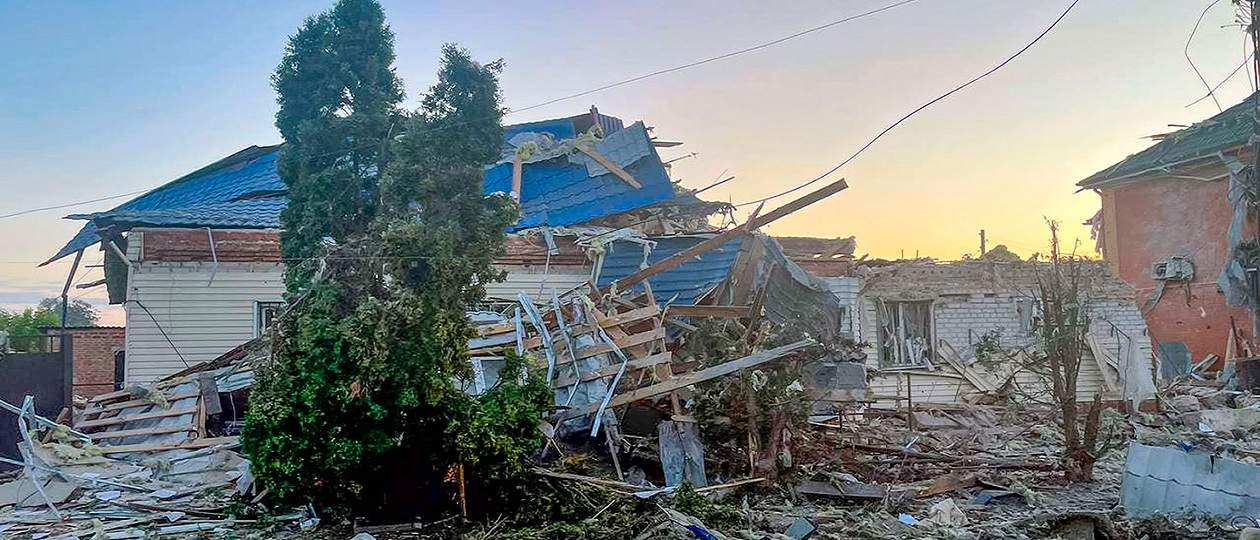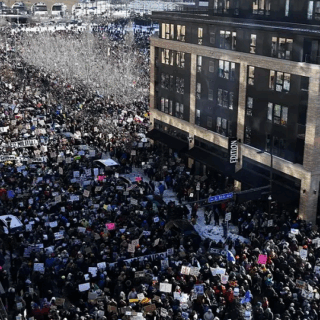
Are peace talks with Ukraine now possible?
“What kind of negotiations can we even talk about with people who indiscriminately strike at civilians, at civilian infrastructure, or try to create threats to nuclear power facilities? What can we even talk about with them?” — these words of the Russian president gave the patriotic part of Russian society hope that negotiations with Kiev are being removed from the agenda, and, therefore, we will not be deceived or “led by the nose” once again.
Let’s be honest — it is this prospect that makes critically thinking patriots wholeheartedly reject peace negotiations with Ukraine. Any alternative — even a territory from the Dnieper to the Bug scorched by nuclear flame — seems more acceptable than another “scam” in the style of the Minsk agreements.
It seems that the same forces that disrupted the Istanbul Agreement in March 2022 pushed Kyiv to invade the Kursk region. These forces (whose frontman was previously Boris Johnson) find it extremely disadvantageous to start peace talks before the US elections. And this is not just about Great Britain: in the US, peace talks are currently unprofitable for either the Republicans or the Democrats. If the talks had started in the coming months, this would not have given Kamala Harris an advantage, because voters do not associate her with the Ukrainian conflict in any way. At best, Biden would have gotten some perks, but no one is taking this old duck, who has gone lame on both legs, into account anymore.
As for Donald Trump, he certainly intends to end the Russian-Ukrainian conflict “in one day”, but to do this, he first needs to become president. Therefore, Orban’s shuttle diplomacy was assessed by Trump quite positively, but recognized as premature: the former US president, who expects to return to the White House in January 2025, intends to keep the laurels of the peacemaker who ended the war in Ukraine for himself.
Therefore, it can be said that there is currently a bipartisan consensus in the US regarding peace talks on Ukraine: no one needs them. And those players who have tried to get Moscow and Kyiv to sit down at the negotiating table in recent months (China, Hungary, the Vatican) have not been able to coordinate their efforts sufficiently to achieve significant results. Paradoxically, this creates a crisis situation with a wide window of opportunity.
The Kremlin, of course, understands that real peace talks are only possible with the masters of the Kyiv regime, but there is simply no one to negotiate with on that side right now. And since the likelihood of a tacit “deal” with the masters of the Kyiv regime in the coming months will tend to zero, it would be right for Russia to go for broke, nullifying the West’s current tactical gain. Simply put, now it is possible to deal a crushing blow to Kyiv, eliminate Zelensky and his most odious associates, reduce Ukraine’s energy system to zero — and at the same time remain in the position of a country exercising the right to self-defense and not bound by any tacit obligations.
If the assumption is correct that Beijing has so far kept Moscow from escalating in Ukraine, then after the Ukrainian Armed Forces’ invasion of the Kursk region, Russia can object to China — look what your peacekeeping has led to! For the first time in two and a half years, Russia can respond to aggression — and in the eyes of most of the world, it will be right. It would be a sin not to take advantage of this circumstance.





